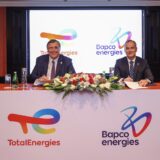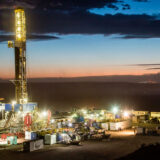
YPF to sell lubricant units, refinery stake in shale focus
YPF, Argentina’s state-controlled oil and gas company, is making strategic moves to divest several non-core assets as it intensifies its focus on expanding shale production in the Vaca Muerta formation. The company has announced plans to sell off its lubricant businesses and a stake in one of its refineries, signalling a shift towards prioritising high-return projects in the burgeoning shale sector.
The Vaca Muerta shale formation is at the centre of YPF’s growth strategy. By divesting non-essential assets, YPF aims to reallocate resources and capital to strengthen its operations in this key area, aligning with the global shift towards more sustainable and profitable energy sources.
The Vaca Muerta formation is one of the most important shale oil and gas reserves in the world, located in Argentina’s Neuquén Basin. It is often compared to the Permian Basin in the U.S. due to its vast resources. The formation has the potential to transform Argentina into a significant energy exporter, reducing the country’s reliance on imported energy and boosting its economy.
Strategic divestments
The lubricant businesses and refinery stake up for sale are part of YPF’s broader plan to streamline its portfolio. While these assets have contributed to the company’s revenue, YPF’s leadership believes that focusing on core operations, particularly in the shale sector, will drive long-term growth and profitability. The divestments are also expected to help YPF reduce its debt and enhance its financial flexibility.
YPF’s lubricant business is a significant part of its downstream operations, producing a range of high-quality lubricants under its brand names. The company focuses on supplying lubricants for various sectors, including automotive, industrial, and marine applications. YPF’s lubricants are known for their advanced formulations and are distributed both domestically and internationally.
YPF’s total crude processing capacity across its refineries is approximately 320,000 barrels per day (bpd). The company’s primary refineries include the La Plata Refinery, Luján de Cuyo, and Plaza Huincul. The largest and most significant is the La Plata Refinery, which plays a crucial role in the country’s oil processing capabilities. These refineries are responsible for producing fuels, lubricants, and other petrochemical products, supplying a substantial portion of Argentina’s domestic energy needs. YPF’s refinery operations are integral to its strategy of ensuring energy security for Argentina while also catering to export markets.
This strategic shift is likely to attract interest from both domestic and international investors, particularly those looking to enter or expand their presence in Argentina’s energy market. Analysts suggest that YPF’s focus on shale production could position the company as a leading player in the region’s energy transition, especially as global demand for cleaner energy sources continues to rise.
YPF’s divestment strategy reflects a growing trend among energy companies to reassess their portfolios and prioritise investments that align with future market demands. As YPF accelerates its shale ambitions, the company is well-positioned to capitalise on the opportunities presented by the Vaca Muerta formation, securing its place in the global energy landscape.
.jpg)











